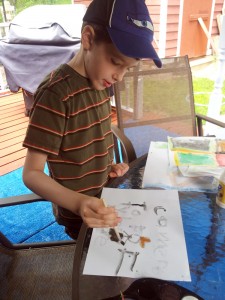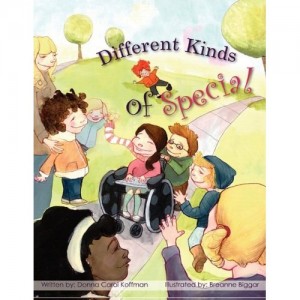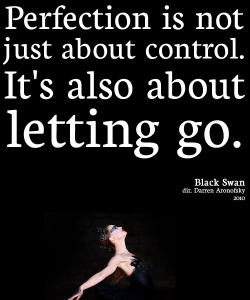For the most part, ABA therapy and other such systems separate the child from the world for some one on one coaching… one therapist, one child.
In many ways, this is not a very good practice when the child is having difficulty coping with social situations and they’re essentially removed from any and all social situations. It’s like trying to help a child play the piano without giving them a piano.
Still though, at the same time… there is some benefit to this. We all know how kids are, with or without autism… the phrase “monkey see, monkey do” comes to mind. Children (and certainly most adults too) are heavily influenced by their peers. When they see someone behave a certain way in a certain situation, they believe that it’s just how it is supposed to be and so they behave the same.
 School
School
My child is in a special school with classes dedicated to autistic children. There are now 5 classes, most around the 5-6 kids size. Which again, like ABA, has some great benefits which I love but then it also has a few problems.
Now, to be clear, these are essentially the same problems that are found in every classroom, it’s just that these can be amplified when autism is involved.
When you put 5 or 6 children together in a classroom, you find that the children will range in behaviors quite radically. Some children are completely obsessive/compulsive in certain objects or mannerisms while others seem to be all over the place. Some children are quite vocal (you know, the never stop talking kind) while others struggle to string words together at all.
In these types of situations, as you can imagine, the “monkey see, monkey do” world of peer influence can be both encouraging and discouraging.
What you find is that some parents love such a positive place where their struggling children can learn the better behaviors of his/her peers while other parents fear that their children will pick up the unwanted/not desired behaviors of some of the other children.
Friends
That’s just school… the same holds true with friends. And this is where things can get… uhmm… sticky?
As a parent of a child with special needs, we all wish for nothing more than for other parents and their children to look passed those needs and just be friends for the sake of being friends. Have play dates, birthday parties… have fun together.
You have to understand that their child, whether they have autism or not, may pick up some behaviors that may be unwanted in their house. That quirky, “it’s just an autism thing”, behavior that you tell your friend that you get used to… might not be something that they want to get used to. And they’ll be sitting there hoping upon hope that their child doesn’t pick it up from yours. They’re not afraid of autism being contagious or anything… it’s just that they know that kids will be kids.
This divide (if you can call it that) even exists in the autism community, I have found. Let’s say that you have a child that is integrating well, learning and desiring to be social and their future looks promising… and then a fellow parent in the community invites you and your child over for a play date or birthday party or something because they don’t have a lot of options, they don’t have a lot of friends and they’re hoping you and your child will be there, because you’re both in the autism community… but their child isn’t coping so well. They are easily angered, aggressive, have mannerisms or behaviors that you hope your child does not pick up… suddenly, you’re “the other parent” that I had just described in the previous paragraph.
You’re both in the autism community so you should be far more understanding and willing to go ahead and do it but at the same time, because your child does have autism, you know they’re far more likely to pick up those behaviors and mannerisms than a child without autism would.
You find yourself understanding why other parents whose children don’t have autism are reluctant to allow their kids to play with yours… because you find yourself being in the exact same situation.
Suddenly ABA isn’t looking so bad huh?
Peers
We can’t shelter ourselves from our peers anymore than we can shelter our children from theirs. Ultimately, bad behaviors are out there and we’ve picked up some from others and our kids will most definitely pick some up from other kids.
It sure is hard though… seeing your child do something at home that you don’t like when you saw some other kid do earlier.
Autism makes it especially hard… when you see your child being that “bad influence” for others and at the same time being very likely to pick up those bad behaviors from other “bad influences”.
I use quotes because most kids aren’t bad influences. They just have some behaviors that you do not desire for your own kids to have.
Ultimately it’s up to each of us to decide what is best for our children, what will and won’t be a good influence on them. But it sure is easier to ask other people to be understanding of our unwanted behaviors than it is for us to be understanding of theirs.
Be careful what you wish for
It’s funny, those of us who have children that don’t speak for a long time… we wish and wish and wish for them to find their voice. Then they do. Then a few years later we’re telling them to stop talking all the way through a movie, or to stop talking and eat or… just to stop for a minute!
Being social is the same, in a way. Autism is classified in the way it makes being social so difficult.. and so we wish and wish and wish that our children can be more social and go to play dates and birthday parties… and then when it happens, we fear the influence!
How can we wish for something so bad… and then not want it again so quickly? Is that what we wished for? Were we unaware of the issues that would come with our wish or were we more than willing to accept those issues if only our wishes could be answered?
Because it seems to me that it’s easy to forget about not caring about the issues when the issues would be a welcome problem to have… that doesn’t diminish the problem though.
We still want our kids to stop talking all the way through dinner or the movie we’re watching. And we still want our children to be around positive influences more than negative ones.
But at the same time, we can’t forget the alternative… we can’t forget all of those out there who still haven’t gotten their wish.
So many people would love to have their children ruin their movie by talking through it… because it would mean that they’re talking. So many people would love to have to worry about what bad behaviors they might pick up from other kids at a birthday party… because it would mean they’d be at a birthday party!
When something seems like a problem… don’t think “be careful what you wish for” and don’t think “monkey see, monkey do”…. instead, think of another old cliche…. take nothing for granted.
So I think, and this is just my opinion, that sometimes a problem is a good problem to have. Because not having that problem can be so much worse. So keep the big picture in mind when you make these decisions… as I said, it doesn’t diminish the issue but perhaps it will give you a new perspective.
Besides, despite this whole article… not all influences are bad influences. There could be some good things picked up along the way!
 So very wrong
So very wrong












